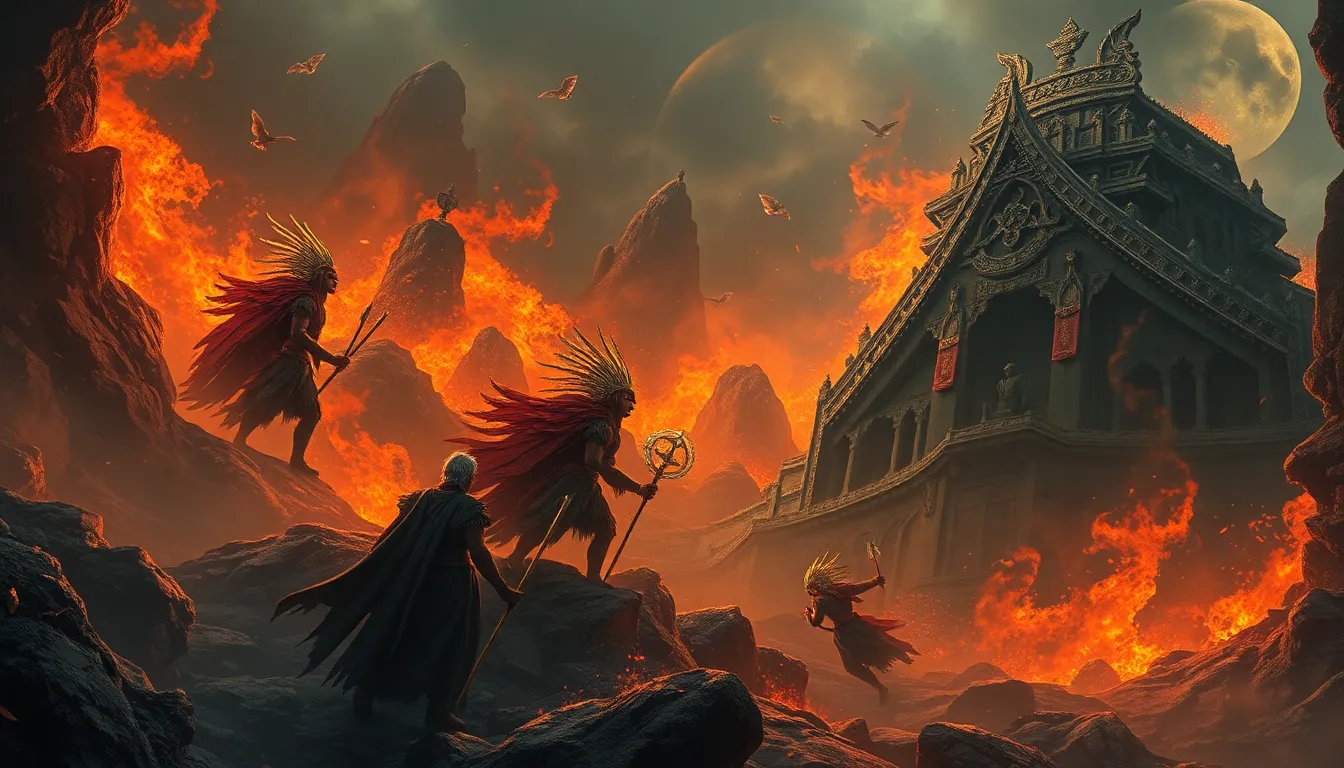Cultural Hero Myths: The Legends That Live On
I. Introduction to Cultural Hero Myths
Cultural hero myths are narratives that celebrate extraordinary individuals who embody the values, ideals, and struggles of a particular society. These myths often feature larger-than-life figures whose actions and journeys resonate deeply within the culture they represent. They serve both to inspire and to instruct, providing frameworks through which societies can understand their own identities and aspirations.
The importance of hero myths cannot be overstated; they shape societal norms and values, offering models of behavior that individuals may aspire to emulate. In this article, we will explore the role of hero myths in cultural identity, common themes that recur across various cultures, prominent examples of cultural heroes, the evolution of these myths in modern society, their psychological impact, their connection to social change, critiques surrounding them, and their future in a globalized world.
II. The Role of Hero Myths in Cultural Identity
Hero myths play a pivotal role in fostering a sense of belonging among members of a culture. They provide shared stories that connect individuals to their community and heritage. Here are some ways in which hero myths contribute to cultural identity:
- Fostering belonging: Hero myths create a collective narrative that individuals can identify with, reinforcing social bonds.
- Defining national identities: Cultural heroes often become symbols of national pride, representing the ideals and struggles of a nation.
- Influencing values and ethics: Hero narratives often embody moral lessons, shaping community values and ethical standards.
Examples of cultural heroes that define national identities include George Washington in the United States, Nelson Mandela in South Africa, and Joan of Arc in France. Each of these figures represents ideals that the respective societies hold dear, such as freedom, resilience, and courage.
III. Common Themes in Hero Myths Across Cultures
Despite the diversity of cultures around the world, there are common themes that resonate in hero myths:
- The hero’s journey: This narrative structure often involves stages such as the call to adventure, facing trials, and returning transformed.
- The struggle against adversity: Heroes often confront significant challenges or evil forces, symbolizing the broader struggles of their communities.
- The hero’s transformation: Personal growth and sacrifice are central themes, as heroes often change through their experiences, leading to greater wisdom or strength.
These themes not only highlight the hero’s journey but also reflect universal human experiences, allowing cultures to connect on a deeper level.
IV. Case Studies: Prominent Cultural Heroes
To illustrate the impact of cultural hero myths, we can examine several prominent figures:
A. Hercules: The Greek Demigod and His Trials
Hercules is perhaps one of the most famous heroes from Greek mythology. Known for his incredible strength and courage, he undertakes the Twelve Labors, a series of daunting tasks designed to prove his worth. Hercules embodies the struggle against insurmountable odds and the idea of redemption, making him a timeless symbol of heroism.
B. King Arthur: The Legendary British Leader and His Knights
King Arthur is a central figure in British folklore, representing ideals of chivalry, honor, and bravery. His legendary sword Excalibur and the Round Table of knights symbolize unity and equality, while his quest for the Holy Grail reflects the search for spiritual enlightenment. Arthur’s legacy continues to inspire modern interpretations of leadership and moral integrity.
C. Mulan: The Chinese Warrior and Her Fight for Family Honor
Mulan is a celebrated figure in Chinese culture, known for disguising herself as a man to take her father’s place in the army. Her story emphasizes themes of loyalty, honor, and courage. Mulan’s bravery and self-sacrifice resonate with the values of filial piety, making her a powerful symbol of female empowerment and resilience.
V. The Evolution of Hero Myths in Modern Society
As societies evolve, so too do their hero myths. This section explores the transition from traditional myths to contemporary heroes:
- Transition to contemporary heroes: Modern narratives often reflect current societal values, with heroes emerging from various fields such as politics, sports, and activism.
- Influence of media and technology: The rise of digital platforms has transformed how hero stories are told, allowing for more diverse representations and global reach.
- The rise of anti-heroes: Contemporary narratives increasingly feature complex characters who embody moral ambiguity, reflecting the complexities of modern life.
VI. The Psychological Impact of Hero Myths
Hero figures serve as role models, influencing behavior and personal development. The psychological impact of hero myths includes:
- Role models: Heroes inspire individuals to strive for greatness and to embody the values they represent.
- Personal development: Engaging with hero narratives can encourage individuals to reflect on their own lives and aspirations.
- Cultural myths and healing: Hero myths can help communities process collective trauma and foster resilience.
VII. Hero Myths and Social Change
Hero myths also play a significant role in inspiring movements for justice and equality:
- Inspiring activism: Figures like Martin Luther King Jr. and Malala Yousafzai have become modern heroes, symbolizing the fight for civil rights and education.
- Mobilizing communities: Storytelling about heroes can unite individuals around common causes and motivate collective action.
VIII. Critiques and Controversies Surrounding Hero Myths
While hero myths are celebrated, they are also subject to critique:
- Idealization of heroes: Overly glorifying heroes can lead to a failure to acknowledge their flaws and the complexities of their actions.
- Cultural appropriation: Misrepresentation of hero myths can lead to the erasure of original cultural contexts and meanings.
- Diversity and inclusivity: It is essential to include diverse perspectives and voices in the retelling of hero narratives to reflect the richness of human experience.
IX. The Future of Hero Myths in a Globalized World
As the world becomes increasingly interconnected, the future of hero myths is likely to evolve:
- Blending narratives: Globalization facilitates the mixing of cultural stories, leading to the creation of new heroes that reflect shared values.
- Preservation of traditional myths: While traditional hero myths may face challenges, they also have opportunities for revitalization through global platforms.
- Addressing contemporary issues: New hero myths may emerge that address pressing global challenges, such as climate change and social justice.
In conclusion, cultural hero myths are not only a reflection of societal values and aspirations but also a powerful means of shaping identity, inspiring change, and fostering community. As we continue to navigate a rapidly changing world, the myths we create and celebrate will play an essential role in defining our collective future.



